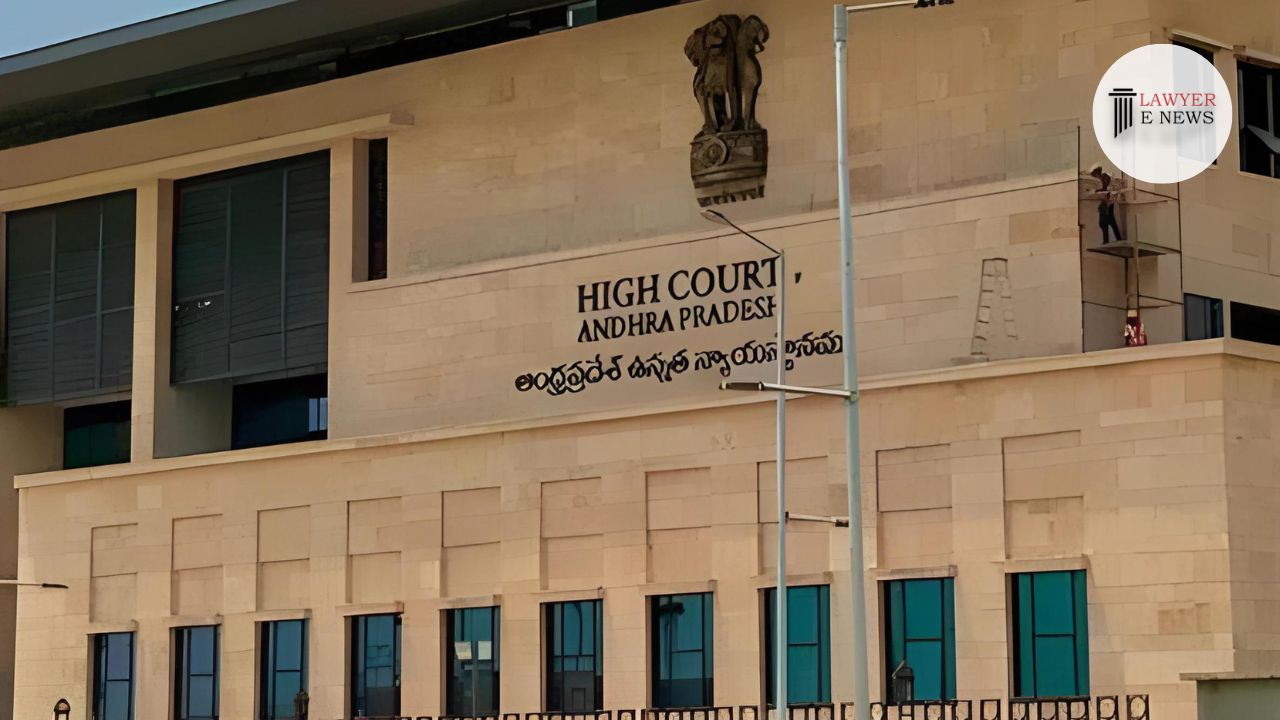-
by Admin
15 February 2026 5:35 AM



Andhra Pradesh High Court issued a significant ruling in the case of Aditya Academy vs. State of Andhra Pradesh & Others, where the court addressed the 20-year delay in registering a sale deed after a public auction. The court ruled that the delay in completing the registration process could not be used to deny the rightful transfer of property to the highest bidder.
The case arose from a public auction held on September 11, 2002, where the petitioner, Aditya Academy, represented by Karri Venkata Krishna Reddy, emerged as the highest bidder for a property belonging to Sri Nookalamma Vari Devasthanam in Kakinada. Despite paying the full bid amount of ₹34,75,000 by June 2003, the sale deed was never registered in favor of the academy, leading to a prolonged legal battle.
The academy had been in possession of the property for over 20 years, but the authorities refused to register the property, citing delays in paying the remaining bid amount and changes in the academy’s representation.
The key issue was whether the failure to promptly pay the remaining bid amount within the stipulated time period of 15 days could invalidate the auction or justify the authorities' refusal to register the sale deed, despite the full amount being paid and possession of the property being transferred.
The petitioner argued that the full payment had been made and possession granted, making it unreasonable for the authorities to withhold the registration. The respondents, however, contended that the delay in payment violated the auction conditions.
The Andhra Pradesh High Court ruled in favor of the petitioner, Aditya Academy, directing the respondent authorities to execute the sale deed. The court held that since the entire bid amount had been paid, and the property was in the possession of the academy, the authorities could not withhold the sale deed indefinitely.
Justice B. Krishna Mohan noted that the auction was confirmed in 2002, and the academy had taken possession of the property. The court emphasized that the delay in payment, though a violation of auction conditions, did not justify depriving the academy of its right to registration, especially since the authorities had accepted the full payment and used the funds for temple purposes.
The court cited Section 53A of the Transfer of Property Act and Section 80 of the A.P. Charitable and Hindu Religious Institutions and Endowments Act, 1987, stating that the respondents were legally obligated to complete the registration after receiving the full bid amount.
The court set aside the impugned proceedings dated November 4, 2022, and directed the respondents to complete the registration of the sale deed within two months. The writ petition was allowed, bringing closure to a decades-long dispute over the auctioned property.
Date of Decision: September 26, 2024
Aditya Academy vs. State of Andhra Pradesh & Others.
